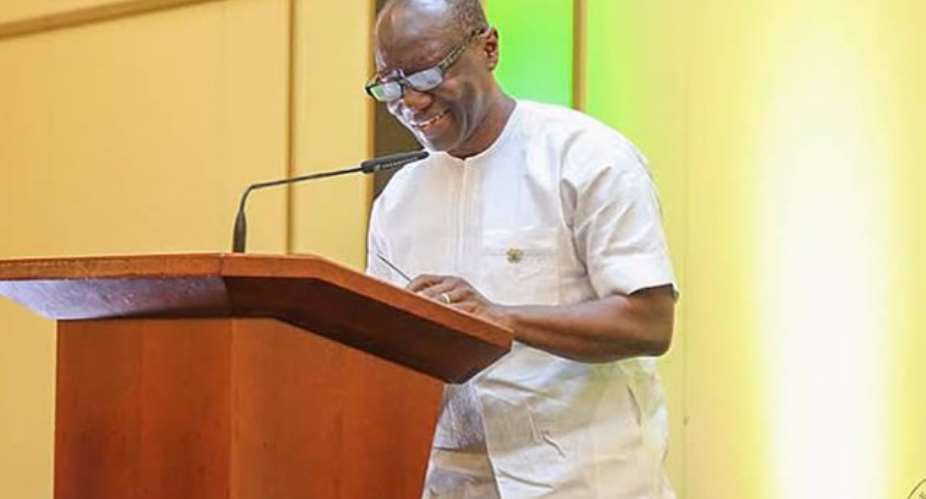The Ghana Statistical Service has started re-basing the economy.
The data gathering for this exercise which started in 2016 will allow the service move the current base year for calculating the country’s GDP estimates from 2006 to 2013.
The result for the GDP estimates is expected to be ready by May 2018. Furthermore, the Service is also reviewing inflation rate calculation and will have a base year of 2017.
Why the rebasing?
According to various international rules, every country must review the way it measures its GDP growth rate at least every 10 years.
In Ghana, however, the move has been influenced by some significant changes in the country that needed to be captured when measuring the economy.
In 2010, the country carried out this exercise which resulted in changing the base year for GDP estimates calculation from 1993 to 2006.
Overall, the recalculation increased Ghana’s estimated GDP in 2010 by 75 percent from GH¢25.6 billion under the previous definition to GH¢44.8billion.
The recalculation exercise was considered necessary, as the old national accounting system did not take into account important emerging sectors of the economy such as communications, oil-sector activities and other important elements of the services sector.
In addition, the new system included more up-to-date compilation methodologies and uses international standards for the definition of industrial activities.
Rebasing of national accounts series means replacing the old base year used for compiling the constant price estimates to a new and more recent base year.
The new series in 2010 placed Ghana as the third largest in the ranking of GDP per person in the ECOWAS sub-region behind Cape Verde and Nigeria, and 21st in Africa according to Intelligence Economic Unit report.
Ghana Statistical Service on the rebasing
According to the Ghana Statistical Service, current data gathering exercise should be ready for economic policy planning and GDP estimates by May 2018.
Head of Economic Statistics at the Ghana Statistical Service, Edward Asuo Afram, in an exclusive interview with JoyBusiness last week said current developments in the economy justifies this exercise to ensure that policymakers are working with the right data.
“For the first time in the history of the country, we have conducted what we call Integrated Business Survey (IBS) that took account of all establishments, from micro, medium and macro”, he added.
Impact on the economy
The development could triple the value of Ghana’s economy from the current monetary value of about GH¢200 billion.
It could also reduce the country’s debt to GDP-to-Ratio, that is if the new estimates record some significant increase in value.
Figures from the Bank of Ghana (BoG) showed that the Debt-to-GDP ratio stood 68.6 percent, however, some industry experts say this could reduce significantly when the Ghana Statistical Service completes the rebasing exercise.
The development could give government the room to borrow more, only if it’s looking at using the extra funds to finance the deficit or infrastructure project.
The new GDP estimates could also reduce significantly country’s Tax to GDP rate, a development that results in some pressure from the country’s development partners for government to improve tax collections.
Reactions from Industry players
The decision to carry out this exercise has not gone down well with all industry players. Indeed, Chief Executive Officer (CEO) of the Private Enterprise Federation, Nana Osei Bonsu noted that this could come with some serious pressure on the economy, like serious cut in donor support for the country.
Questioning why the country is rushing to re-basing the economy, the CEO asked, “when we jumped up into calling ourselves middle income, were we really middle income?”.
“We cut ourselves off some sources of consistent facilities we would have taken advantage of, just calling yourself the jack of all trades when you know you are master of none doesn’t make the efficient institution.
"We want instead of middle-lower income, the next thing you know is middle income but what does that do to the economy”, he lamented.
Former Ghana Statistical Service Official and Senior Economist at the Institute of Fiscal Studies, Ebo Duncan, however, said this should be seen as a normal review and nothing would change,
“There is nothing wrong with properly measuring your economy, nothing changes. You are what you are only that you are not measuring it properly because of certain things," he added.
He further explained that everything has a lifespan relating it to using a scale for measurement which becomes weak over time thereby giving out wrong measurements.





 Akufo-Addo commissions Phase II of Kaleo solar power plant
Akufo-Addo commissions Phase II of Kaleo solar power plant
 NDC panics over Bawumia’s visit to Pope Francis
NDC panics over Bawumia’s visit to Pope Francis
 EC blasts Mahama over “false” claims on recruitment of Returning Officers
EC blasts Mahama over “false” claims on recruitment of Returning Officers
 Lands Minister gives ultimatum to Future Global Resources to revamp Prestea/Bogo...
Lands Minister gives ultimatum to Future Global Resources to revamp Prestea/Bogo...
 Wa Naa appeals to Akufo-Addo to audit state lands in Wa
Wa Naa appeals to Akufo-Addo to audit state lands in Wa
 Prof Opoku-Agyemang misunderstood Bawumia’s ‘driver mate’ analogy – Miracles Abo...
Prof Opoku-Agyemang misunderstood Bawumia’s ‘driver mate’ analogy – Miracles Abo...
 EU confident Ghana will not sign Anti-LGBTQI Bill
EU confident Ghana will not sign Anti-LGBTQI Bill
 Suspend implementation of Planting for Food and Jobs for 2024 - Stakeholders
Suspend implementation of Planting for Food and Jobs for 2024 - Stakeholders
 Tema West Municipal Assembly gets Ghana's First Female Aircraft Marshaller as ne...
Tema West Municipal Assembly gets Ghana's First Female Aircraft Marshaller as ne...
 Dumsor is affecting us double, release timetable – Disability Federation to ECG
Dumsor is affecting us double, release timetable – Disability Federation to ECG
